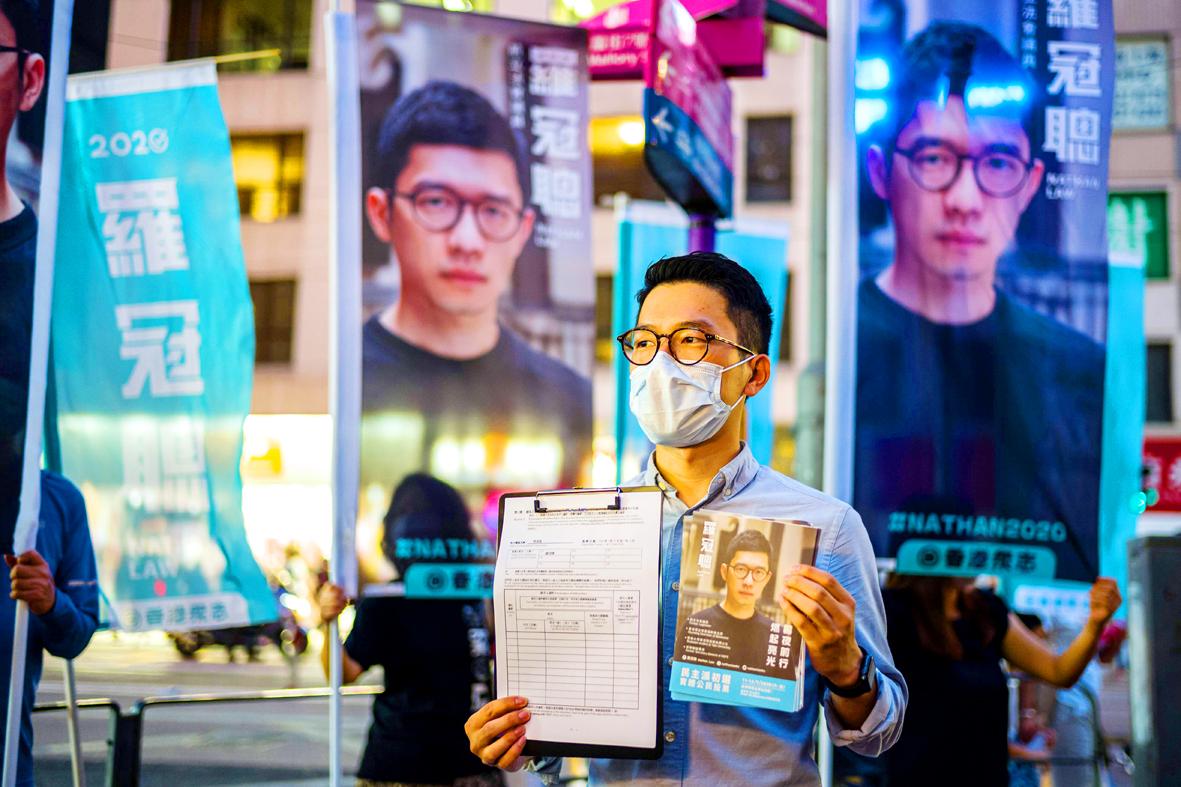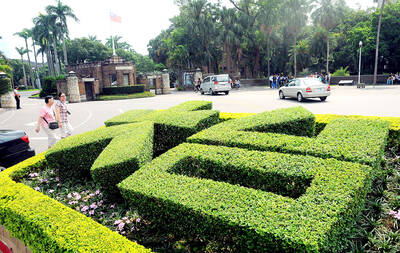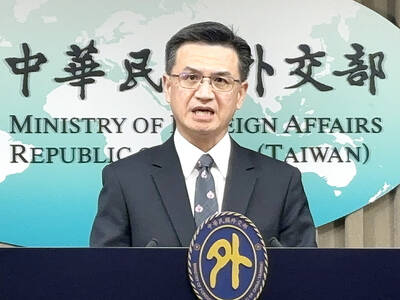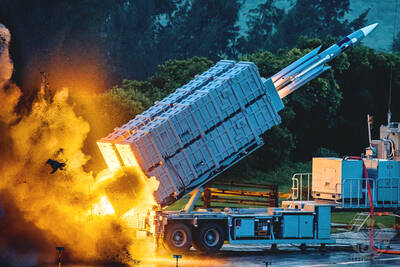Prominent Hong Kong democracy advocate Nathan Law (羅冠聰) has left the territory for an undisclosed location after testifying in a US congressional hearing about the national security legislation imposed by China.
Law, who declined to disclose his whereabouts for safety reasons, said in an interview with The Associated Press yesterday that he left because Hong Kong needs an advocate for democracy who can work internationally.
Under the national security legislation, democracy advocates and lawmakers in Hong Kong who speak to foreign media or testify in foreign hearings can be arrested for secession or colluding with foreign forces, Law said.

Photo: Sam Yeh, AFP
“For me, leaving the place that I love, that I grew up in, that I spent most of my life in, it’s definitely a really difficult decision, but this is more than a personal choice,” Law said. “I miss everything from it.”
The legislation, which took effect on Tuesday, targets secessionist, subversive or terrorist acts, as well as collusion with foreign forces intervening in the territory’s affairs.
Law, 26, rose to prominence in Hong Kong as one of the student leaders of the 2014 “Umbrella movement.”

Photo: AFP
In 2016, he became the youngest lawmaker elected to the Hong Kong Legislative Council, but was later disqualified after he raised his tone while swearing allegiance to China during the oath, making it sound like a question.
He was a leader of Demosisto with fellow democracy advocates Joshua Wong (黃之鋒) and Agnes Chow (周庭).
All three resigned on Tuesday ahead of the legislation coming into effect. With the loss of its top members, Demosisto dissolved.
The Hong Kong government on Thursday announced that the popular protest slogan “Liberate Hong Kong, Revolution of Our Time” connotes a call for Hong Kong’s independence or its separation from China, and those using it or displaying it could be in contravention of the legislation.
Hong Kong police on Wednesday arrested about 370 people, including 10 on suspicion of breaching the national security legislation, as thousands took to the streets to protest it.
In some cases, suspects were carrying items advocating Hong Kong’s independence, police said.
Critics say the legislation effectively ends the “one country, two systems” framework under which the territory was promised a high degree of autonomy when it reverted to Chinese rule in 1997.
“That is blatantly eradicating ‘one country, two systems,’ it’s blatantly putting the last nail in the coffin,” Law said.
He urged the international community to prioritize human rights over trade interests, and to present a united front to “combat or contain the authoritarian expansion of China.”
Under the national security legislation, the maximum punishment for serious offenses is life imprisonment, and suspects in certain cases could be sent to the mainland for trial if Beijing deems it has jurisdiction.
A 24-year-old man who was arrested for allegedly stabbing a police officer during the protests on Wednesday has been charged with wounding with intent, police said yesterday.
Separately, police yesterday charged a 23-year-old man with incitement to secession and terrorist activities, making him the first person to be prosecuted under the new legislation.
Tong Ying-kit (唐英杰) has been accused of crashing a motorcycle into a group of police officers during Wednesday’s protests while possessing a flag with a banned slogan.

Taiwan has experienced its most significant improvement in the QS World University Rankings by Subject, data provided on Sunday by international higher education analyst Quacquarelli Symonds (QS) showed. Compared with last year’s edition of the rankings, which measure academic excellence and influence, Taiwanese universities made great improvements in the H Index metric, which evaluates research productivity and its impact, with a notable 30 percent increase overall, QS said. Taiwanese universities also made notable progress in the Citations per Paper metric, which measures the impact of research, achieving a 13 percent increase. Taiwanese universities gained 10 percent in Academic Reputation, but declined 18 percent

Chinese President Xi Jinping (習近平) yesterday met with former president Ma Ying-jeou (馬英九) at the Great Hall of the People in Beijing, with Xi’s opening statement once more emphasizing that people on both sides of the Taiwan Strait are Chinese and that foreign intervention cannot change their inevitable unification. Xi said that 5,000 years of history of zhonghua minzu (中華民族, ethnic Chinese group) have seen their ancestors move to Taiwan to establish new lives, while also documenting them fighting side-by-side against foreign forces and finally freeing Taiwan. “Both sides are Chinese,” and there are no issues that cannot be worked through, he

BULLY TACTICS: Beijing has continued its incursions into Taiwan’s airspace even as Xi Jinping talked about Taiwan being part of the Chinese family and nation China should stop its coercion of Taiwan and respect mainstream public opinion in Taiwan about sovereignty if its expression of goodwill is genuine, the Ministry of Foreign Affairs (MOFA) said yesterday. Ministry spokesman Jeff Liu (劉永健) made the comment in response to media queries about a meeting between former president Ma Ying-jeou (馬英九) and Chinese President Xi Jinping (習近平) the previous day. Ma voiced support for the so-called “1992 consensus,” while Xi said that although the two sides of the Taiwan Strait have “different systems,” this does not change the fact that they are “part of the same country,” and that “external

UNDER DISCUSSION: The combatant command would integrate fast attack boat and anti-ship missile groups to defend waters closest to the coastline, a source said The military could establish a new combatant command as early as 2026, which would be tasked with defending Taiwan’s territorial waters 24 nautical miles (44.4km) from the nation’s coastline, a source familiar with the matter said yesterday. The new command, which would fall under the Naval Command Headquarters, would be led by a vice admiral and integrate existing fast attack boat and anti-ship missile groups, along with the Naval Maritime Surveillance and Reconnaissance Command, said the source, who asked to remain anonymous. It could be launched by 2026, but details are being discussed and no final timetable has been announced, the source